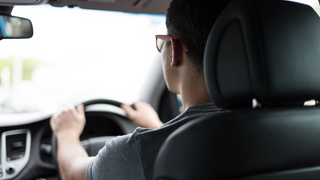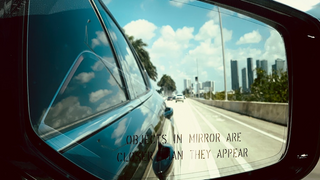Taking your driving test is one of the most daunting experiences you will ever face in your lifetime, no matter what your age is.
The amount of money it can cost to get yourself into a position to take a test is extreme in itself, so with that factor, plus all of the hard work you've put in, it's only natural to have nerves on the day.
The coronavirus hasn't helped matters either; due to all of the government restrictions that were put in place, driving lessons and tests had to be pushed back and there is still an incredibly big backlog of those wanting to take their driving test.
Do you want to upgrade or save money on your car? Find out if you can today by clicking the banner below to view your deal.
It means that if you sadly do fail, you could be waiting up to six months to have the chance to retake unless, of course, you are able to pick up a cancellation before then.
With that in mind, we've put together a guide that lists some of the things you can do to ensure you pass your next driving test and avoid the long waits and extra costs to retake. So let's get to it.
Be on time
It sounds completely ludicrous to even suggest this, but you'll be amazed by how many people fail their test because they haven't turned up on time.
Examiners are being put under increased pressure to increase the number of tests they conduct per day, and therefore if you're even just a minute late, you could risk getting yourself a fail before you've even stepped into your car.
Try to get to the test centre in good time - at least 10-15 minutes in advance is a good amount of time to use the toilet facilities, have a drink, and go over any last-minute concerns with your driving instructor.
You also want to avoid any extra unnecessary stress or anxiety by having to rush to the test centre and get straight into the test as soon as you arrive. Giving yourself that time will alleviate those concerns and allow you to focus on the task at hand.
Have a lesson beforehand
It's recommended that your driving instructor picks you up at least an hour before your test so you can run through a few final things before your test.
Practicing your manoeuvres one last time will definitely not harm your confidence and ensure you are completely ready for what lies ahead.
If you can get a couple of lessons in the week of your test, that would be ideal too, just to iron out any issues and give you the best chance of passing.
Check you have everything you need
It's critical that you turn up to your test fully equipped, as forgetting just one item could mean your test not going ahead and is a failure.
Remember to take your provisional license card with you; if you don't have a card, then the paper equivalent will suffice.
You'll also need your driving theory certificate and in these covid times, a mask and your own pen to sign the agreement prior to the test.
Use your instructor's car
If you have been practicing in your instructor's car for the duration of your lessons, then it would be a big mistake choosing to do the test in your own car.
You will have gotten fully accustomed to how your instructor's car works, including where everything is on the dashboard, plus your lights, wipers, and everything under the bonnet.
It will also be critical for you when undertaking the 'show me, tell me' part of the test, where the examiner will ask you to show them one thing, such as how to wash your windscreen while driving and tell them one thing, such as how to check your car's brake fluid level.
If you are doing the test in a car that you've practiced fewer times in than your instructor's then you might be in a bit of trouble when you do this part of the exam.
Let your instructor sit in the back
Having your instructor sit in the back while on your test is not compulsory, but it could help you stay calm knowing you have a familiar face in the car with you.
Not only that, but if the worst were to happen and you did fail, your instructor would be able to pinpoint where and why you failed and help you work on that in the future.
If this does make you nervous, though, then just think of it as starting your driving lessons right at the very start when you met your instructor for the first time. Or imagine it's a normal lesson but your instructor is sick and asked their relative if they would take you out instead so you don't miss out.
Obviously easier said than done advice, but it's about trying to get you in the right mindset so you remain focused and confident no matter who you're driving next to.

Don't be afraid to ask the examiner to repeat
If you don't hear or understand an examiner's instruction, then don't be afraid to ask them to repeat it. It's not going to affect your test outcome, nor will they mark you down for it.
Don't assume you've failed
If you make a mistake on your test, the worst thing you can do is panic and assume you've failed. This could lead you to make an error that is considered a failure, even if you hadn't done it already.
One 'major' mistake will result in failure, but you are allowed to have up to 15 'minor' driving faults.
If you make a mistake, don't beat yourself up about it as there's probably a high chance that it was just a minor, providing it didn't result in a possibly dangerous situation.
Get to know your test routes
Your test route will cover a wide area in your local town or city, but your instructor will know all of the boundaries of the potential routes, plus all of the places that could cause you a bit of trouble.
There will be hundreds of different possible routes you could take within your test area, but practicing around said area will give you a much better idea of what you should expect to face.
Your examiner will know where people regularly slip up so should help guide you through the trickier bits multiple times before the day of your test.
Exaggerate your mirror checks
As soon as you leave the test centre, examiners will be keeping a strong watch on your general observation and that includes whether you are looking in your mirrors when slowing down or changing direction.
This is the biggest cause of minor faults and if you consistently show that you aren't doing these checks, it could be upgraded to a serious driving fault.
It's important - especially in the first five or 10 minutes of the test - to over-exaggerate your mirror checks to show the examiner you are aware of your surroundings. You can do this by just moving your head in the direction of where you are turning, more than you would normally.
The likelihood is once the examiner is settled into the test and has seen you make your observations several times, they will be more relaxed and confident that you are able to do that side of the driving.

Don't rush your manoeuvre
You will be asked to perform one reversing manoeuvre on your test and it could be: parallel parking, reversing into a car parking bay, pulling forward into a car parking bay then reversing out, or pulling up on the opposite side of the road and reversing two car spaces.
This is your one and only shot to let the examiner know you can perform this manoeuvre, so you should take your time and not let anything around you distract you.
If you are asked to do your manoeuvre when other cars are around, try not to panic, stay calm, and take your time. You know how to perform it; if you didn't, your examiner would not have recommended you take your test yet.
If you have to do some adjusting of your manoeuvre, such as moving forward to reverse again, or straightening up, this is fine and much less risky than settling for an effort that might not be 100% accurate.
For example, if you're asked to do a parallel park and end up hitting the kerb, that's an automatic fail; no second chance. However, if there is any doubt in your mind that you could be close to hitting the kerb, stop, get into first gear, and move forward before completing the reverse and ending up parallel.
You will be given a minor fault for not completing it all in one go, but you would never forgive yourself if the only reason you failed your test was that you rushed your manoeuvre.
Choose when to take your test
You will likely have a strong idea of what traffic is like in the area you take your test, and if you don't, I'm sure your instructor will.
Try to book your test for a time when there is less traffic on the road and therefore less chance of there being any distractions or added pressure from other road users.
Typically between 10:00-11:00 is an excellent time to take a test because you would have missed all of the rush hour traffic and parents taking children to school. You'd expect it to be a quieter time on the road unless, of course, you have major roadworks or delays in your area.
Also, be sure to book it at a time when you won't have other distractions. For example, if you know you have a school or university exam in a particular week, maybe aim for the week after it's done so you don't get distracted by a revision or exam nerves.
Learn to drive in different conditions
A lovely clear, dry day would be the perfect weather condition to have on your test but unfortunately in the UK, it might not be likely.
Practicing in all elements, whether it be bright, wet, windy, or at night will better prepare you for everything that could happen on your test.
When you pass your test, you will be exposed to all kinds of elements, so it's better to get used to them next to an instructor than to face them for the first time alone as a new driver.
Click below to discover if you could change your finance deal and get into a newer car.
Listen to your instructor
If your instructor says you are ready to take your test, then they know best, so you should have full confidence in yourself that you are ready to pass.
An instructor would not advise you to take a test for the sake of it as it could harm their pass rate and knock your confidence if you were to go in not fully prepared.
They will know your weaknesses, and you will be able to ask for clarity on things you aren't so sure about to make sure you are physically and mentally prepared for the test.
Go over your theory again
You may have passed this months ago, but it doesn't hurt to go over it a few more times before your practical test to ensure you are fully aware of road signs, speed limits, and the right of way. These are three things during the practical that could prove challenging if you are not 100% sure about them.
Listen to the examiner at the end
Whether you pass or fail, the examiner will have some really useful feedback for you at the end of your test to help you develop and get even better.
If you fail, they will explain why and how you failed, as well as what you could do differently next time. If you pass, it's a really humbling experience to hear those words, as well as any little mistakes that could be worked on.
We hope these tips help you pass your test, whether it be your first or the 13th that you are undertaking. The number one tip though is to remain calm, don't panic, or let yourself get flustered even if you make a mistake as this could make you make a more serious error. Good luck!
/driving-test.jpg)


/car-tax-disc-image2.jpg)
/money-saving-tips.jpg)
/car-tax-sorn.jpg)